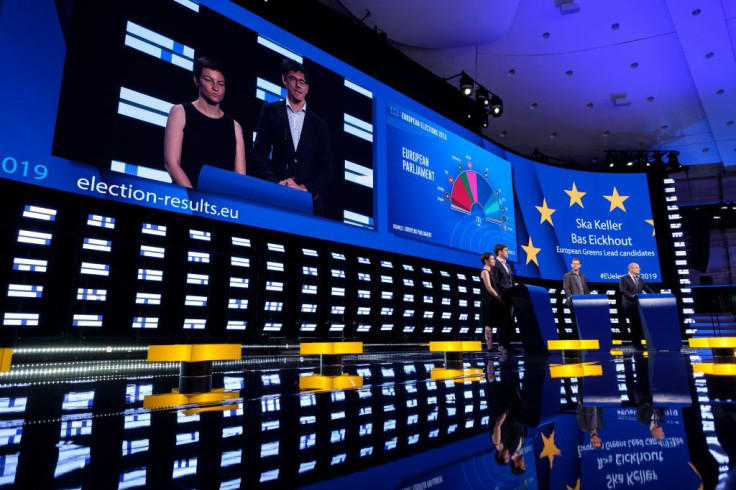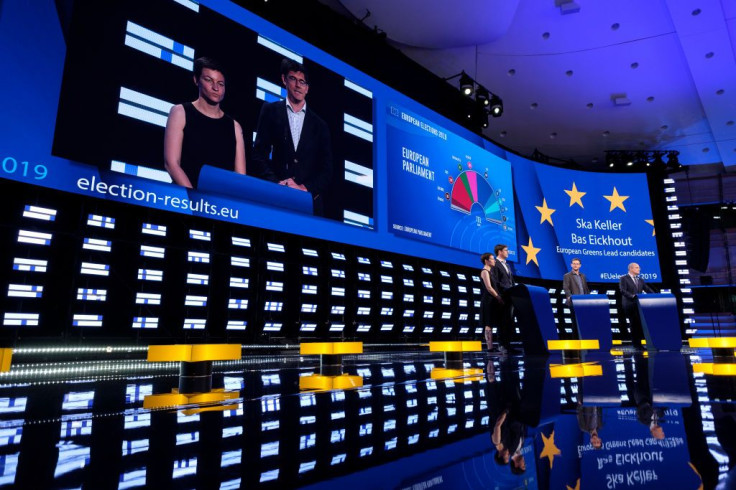European Elections Results 2019: Pro-EU Green And Liberal Parties Dominate Votes

The centrist and center right "Grand Coalition" continues to lose its grip on power in the just concluded elections for the 751-seat European Parliament. The elections from May 23 to 26 saw huge gains by liberal parties such as the Greens and ALDE.
The elections confirm pro-EU parties will control two-thirds of the seats at the EU Parliament, even as right-wing nationalists saw their popularity decline as a whole across the EU.
All in all, the center left and centrist parties that have dominated the EU Parliament since the late 20th century lost 71 seats, a significant setback, but one counterbalanced by the fact many of these losses went to left-leaning parties more accommodating to centrists.
Euroskeptic parties in France and the U.K. clung to the gains they made in 2014 but failed to advance their representation. Anti-immigration political parties remained in power in Hungary and Italy.
The Grand Coalition consists of the European People's Party (EPP) and the Progressive Alliance of Socialists and Democrats (S&D). EPP has been the largest party in the European Parliament since 1999 and S&D, the second largest.
Early results based on available provisional or final national results from the 28 EU member states show the EPP and S&D ceding their majority in the European Parliament after losing 71 seats. The conservative EPP has won 179 seats (from the former 217 seats); S&D, 150 (from 187).

Election results show the biggest winner as the Alliance of Liberals and Democrats for Europe (ALDE), which captured 108 seats (from the former 67). The pro-EU ALDE is a transnational alliance between two European political parties: the Alliance of Liberals and Democrats for Europe Party and the European Democratic Party.
The second biggest winner was the Greens/European Free Alliance (Greens/EFA), which increased their 51 seats to 68.
The voter turnout in the European elections was a high 50.5%, one of the highest turnouts ever, according to the European Parliament. This total compares to the 42.61% in the 2014 elections.
On the other side of the political spectrum, the anti-immigration Europe of Nations and Freedom (ENF) won 84 seats (from the former 60) while its allies, the euroskeptic and right wing European Conservatives and Reformists (ECR), won 51 seats (from 76).
© Copyright IBTimes 2024. All rights reserved.





















